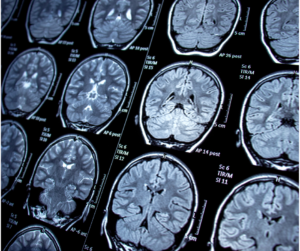Hypnosis, often shrouded in mystery and misconceptions, has emerged as a promising tool for managing anxiety and promoting overall well-being. But how does hypnosis actually work, and what makes it effective in alleviating anxiety symptoms? In this article, we delve into the mechanisms behind hypnosis and its role in anxiety relief, shedding light on this fascinating therapeutic modality.
At its core, hypnosis is a state of focused attention and heightened suggestibility, characterized by a deep sense of relaxation and receptivity to therapeutic suggestions. Contrary to popular belief, hypnosis is not a form of mind control or manipulation; rather, it is a collaborative process between the hypnotist and the individual being hypnotized. During hypnosis, the conscious mind becomes more relaxed and passive, allowing access to the subconscious mind where deeply ingrained beliefs and patterns reside.

The subconscious mind plays a crucial role in shaping our thoughts, emotions, and behaviors, often operating beneath the surface of conscious awareness. Many anxiety-related issues, such as irrational fears, negative self-talk, and maladaptive coping mechanisms, stem from deeply rooted beliefs and conditioning stored in the subconscious mind. Hypnosis provides a direct pathway to the subconscious, enabling individuals to reframe negative thought patterns, release emotional blockages, and cultivate a more positive mindset.
One of the key mechanisms of hypnosis is the power of suggestion. During a hypnotic trance, individuals are highly responsive to therapeutic suggestions provided by the hypnotist. These suggestions can range from promoting relaxation and stress reduction to instilling feelings of confidence and self-esteem. By bypassing the critical faculties of the conscious mind, hypnosis allows positive suggestions to penetrate deeply into the subconscious, where they can take root and influence behavior change.

Recent advancements in neuroscience have shed light on the underlying brain mechanisms involved in hypnosis. Functional magnetic resonance imaging (fMRI) studies have shown that hypnosis can modulate activity in brain regions associated with attention, memory, and emotion regulation. Additionally, hypnosis has been found to promote neuroplasticity, the brain’s ability to reorganize and form new neural connections, which may facilitate long-lasting changes in thought patterns and behavior.
Hypnosis offers a versatile approach to anxiety management, addressing the underlying psychological and emotional factors that contribute to anxiety symptoms. Through hypnotherapy techniques such as relaxation induction, visualization, and cognitive restructuring, individuals can learn to reduce stress, challenge negative beliefs, and develop healthier coping strategies. Additionally, hypnosis can be used to access past traumas or unresolved emotions that may be fueling anxiety, allowing for deeper healing and resolution.
If you’re interested in exploring hypnosis for anxiety relief, here are some practical tips to help you get started:
- Find a Qualified Hypnotherapist: Seek out a certified hypnotherapist with experience in treating anxiety-related issues. A skilled hypnotherapist can tailor the sessions to your specific needs and guide you through the process with compassion and expertise.
- Set Clear Intentions: Before embarking on a hypnotherapy journey, clarify your goals and intentions for the process. Whether it’s reducing anxiety symptoms, boosting self-confidence, or overcoming specific fears, having a clear vision of what you hope to achieve will enhance the effectiveness of the sessions.
- Practice Self-Hypnosis: In addition to working with a hypnotherapist, you can also practice self-hypnosis techniques at home. Guided self-hypnosis audios and scripts are readily available online and can be used to reinforce therapeutic suggestions and promote relaxation.
- Be Open and Receptive: Approach hypnosis with an open mind and a willingness to explore new possibilities. Trust in the process and allow yourself to relax deeply into the experience, knowing that positive changes are within your reach.
Hypnosis offers a powerful and effective approach to anxiety relief, harnessing the innate capabilities of the mind to promote healing and transformation. By accessing the subconscious mind, harnessing the power of suggestion, and leveraging insights from neuroscience, hypnosis empowers individuals to overcome anxiety-related challenges and cultivate a greater sense of peace and well-being.
Whether used alone or in conjunction with other therapeutic modalities, hypnosis has the potential to revolutionize the way we understand and manage anxiety in today’s fast-paced world.
*If you want to learn what hypnosis really is and experience a free session, watch this FREE program.
